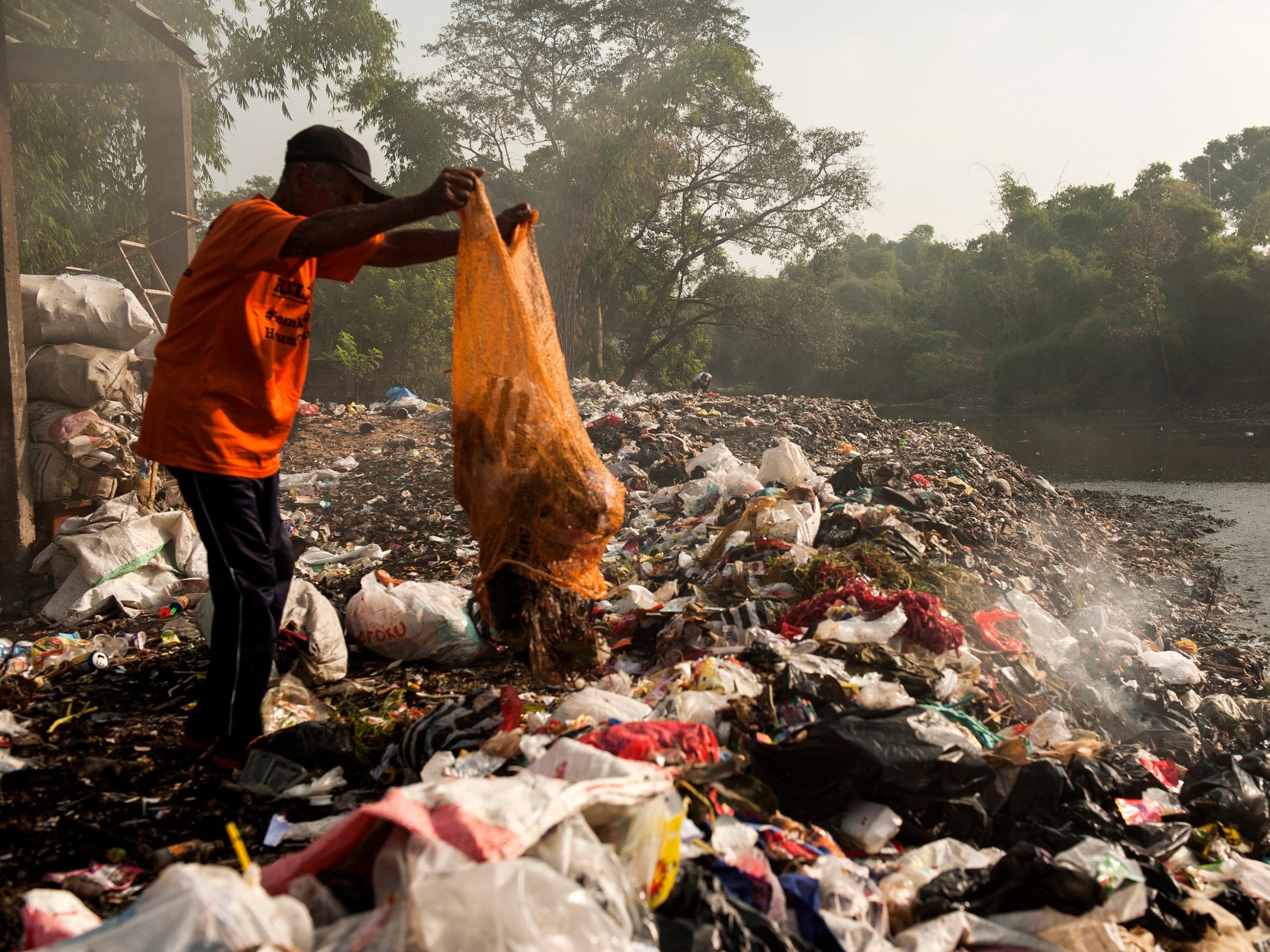Climate apocalypse or bright new future? Wholesale system change is needed to pull us back from the brink
Corporate giants like Sky and Unilever have made steps towards looking at the root cause of sustainability problems rather than seeking temporary solutions
An overdue realisation has crept up on the world over the past year.
It has been a year of arctic conditions across North America following a blazing summer of wildfires and heatwaves, the dire prognosis from the Intergovernmental Panel on Climate Change, plummeting insect populations and heart-wrenching images of marine life strangled and poisoned by plastic waste.
It is clearer than ever that the world is on a vastly unsustainable trajectory threatening to undermine years of social and economic progress as well as the very systems we rely on to sustain us.
Action is needed, fast. In response, we are seeing heroic innovations, tantalising technologies and corporate sustainability going mainstream. But too often these approaches are geared towards temporary relief and don't address the root cause of the problem. We believe the answer lies in embracing systems change.
A system is simply a configuration of parts geared towards an outcome. A system can be as small as a beehive or as large as the NHS. At Forum for the Future, we see that the greatest challenges arise from our global systems being fundamentally broken: a food system that undermines the ecosystems upon which it relies, an economy which maximises short-term growth over long term viability, or an energy system fuelling runaway emissions and climate breakdown. System change means reinventing the rules of the game, creating new ways of organising and building refreshed, resilient systems.
What then does this mean in practice? A crucial first step is a proper diagnosis of the problem at hand, something we explore with seven megatrends in our report, ‘The Future of Sustainability: Driving Systems Change in Turbulent Times’.
It helps to envisage of an iceberg in order to demonstrate how change takes place at different levels. What we see above the surface, at the tip of the iceberg, are the visible events around us – a mother seagull trying to feed plastic to her chick, for example.
A little below the surface, these events join up into patterns and trends. Plastic turning up in the stomachs of hundreds of marine species, for example. Deeper still are the systems and structures which allow these patterns to emerge such as cheap plastic, poor recycling infrastructure, a throwaway economy, lack of incentives.
Finally at the iceberg’s base, far below the surface are our deeply held belief systems, values and mindsets: convenience, disconnection from nature, consumerism and many more. Each level creates the conditions for the layer above to emerge. Recognising the deep drivers of a challenge helps you diagnose where change is needed for long-lasting effect - the deeper, the better.
Getting to the root cause also reveals how global challenges are messy and rarely act in isolation. Climate change, for example, is deeply interwoven with loss of biodiversity, which is needed for a high-yield food system; and is driven by short-term thinking and demand for convenience. Rising nationalism is intermeshed with increasing digital connection and the spread of misinformation, built on deeply held fears of being left behind, and the need for belonging and for security.
So, what can we do?
There are no silver-bullet solutions. Addressing global challenges requires joined-up action from a whole suite of actors – from individuals to governments to non-profits.
In particular, the corporate sector urgently needs to move beyond corporate social responsibility (CSR) towards understanding the power it has to reconfigure systems that it is part of.

A great example of this is Sky and its role in raising awareness around ocean plastics. The company quickly moved beyond standard CSR, recognising the power of its broadcasting reach, giving rise to the documentary ‘A Plastic Ocean’, the Ocean Rescue and Sky Ocean Ventures – true corporate activists.
Or another long-term partner of ours, Unilever, who, seeing that frequent financial reporting caused short-term thinking, stopped quarterly reporting. This small structural change is enabling the long-term investment required for more sustainable approaches and demonstrating that shareholders can be persuaded to get behind ideas when they are convinced they will generate long-term value.
Both companies are contributing to a wider process of system change; Sky by highlighting the root causes of the plastics problem, Unilever by shifting, however minutely, the rules of the game for business.
Of course, enlightened self-interest comes into play here. These leaders recognise that putting their faith in current, broken systems will ultimately spell the end of their businesses as they run out of resources and their supply chains are fractured by climate change.
But they are also helping to create the conditions for the emergence of a new version of capitalism. One that is regenerative – giving back more than it takes from people and planet – and that fully appreciates the fallacy of infinite growth on a finite planet.

It is only through fixing our broken systems, rather than applying sticking-plaster solutions, that we can inch back from the brink of a climate crisis. By looking to the future, re-imagining our systems, understanding how they can be different, we can reinvent the way the world works.
This is what will make the difference between climate apocalypse and a bright new future. And it is within our grasp, but only just.
Dr Sally Uren OBE is chief executive at Forum for the Future, a leading international non-profit tackling complex global challenges by catalysing change in key systems. To read their latest report visit thefuturescentre.org/fos2019
Join our commenting forum
Join thought-provoking conversations, follow other Independent readers and see their replies
Comments
Bookmark popover
Removed from bookmarks